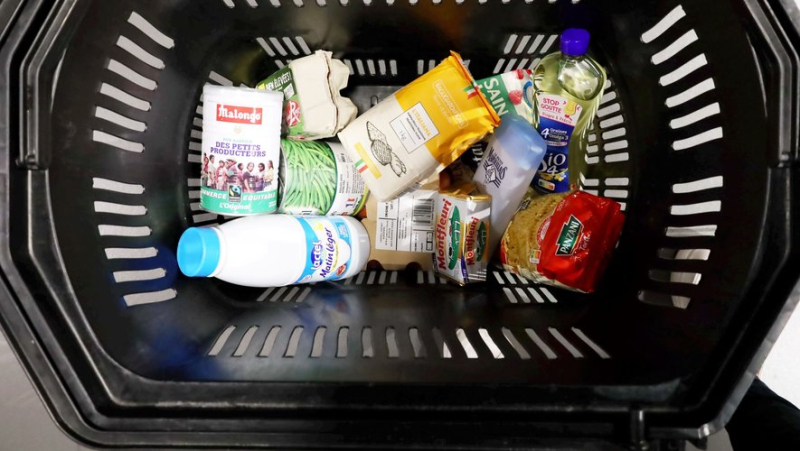“I have 3 euros to eat per day and I don't heat”: Sylvain, retired, lives on 650 euros per month

Des produits de première nécessité, pas toujours de qualité. MIDI LIBRE – GI
In a report presented at the Epidaure center of the ICM in Montpellier, produced by several hands, entitled “The unfair price of our food, what costs for society and the planet ?”, the poor, birds and farmers share sad statistics. Testimonies.
“I have a maximum of 3 € per day to eat", confides Sylvain, a retiree living on 650 € per month. “I don't heat, I write down everything. At the end of the month, I have between 70 and 90 euros to eat”. “When you don't have any money, you're completely stuck, Gérard laments, who is involved in the study “The unfair price of our food”.
“We know what it costs to have products that come from far away, the plane, the pollution and everything, we know that it's not great for the planet, but when you don't have the money to do otherwise, you're supposed to do comment ?".
Anger and dismay
Anger linked to the powerlessness felt and to guilt reinforces the feeling of exclusion from any participation in the change that must nevertheless take place. “On food, we only address citizens for their wallets. But when you are on RSA, you do not have the means to choose what you eat”, says Alain, also involved in the study, indignantly. “I take what I am given at the Restos du Cœur and I do the best I can with it”, explains Danielle, a recipient of the minimum old-age pension. “It's quite humiliating at my age, but that's how it is”.
“My daughter ate in the canteen, it was a weight off her shoulders!”
Katia* is a 32-year-old woman from Montpellier who wants to keep anonymity: “I arrived in France six years ago. It's a part of my life that I want to forget. Today, I volunteer at Secours Catholique, after having been a beneficiary for several years, because I was in a precarious situation due to the fact that I didn't have the right to work.”
I came to study a medical specialty, to work in France, and today it's done.“But it was very hard. My savings melted away very quickly. I was able to get a residence permit. I had nothing to eat. There was no question of having a healthy diet, but for my two-year-old daughter it was essential. Fortunately, she ate lunch in the canteen, it was a weight off her shoulders. I had recourse to food aid, and I was able to benefit from better food thanks to the Secours Catholique project, with the organic baskets from the Jardin de Cocagne. Today, things are better, I am going to be hired. “It's behind me.”
A higher risk of suicide
On the producers' side, it's hardly more optimistic. “If we set a price that allows us to live, we only sell to a niche of people. It's disturbing to think that we make healthy food, but that not everyone has access to it,” complains Anne. And the paradox is even more glaring for Nicolas: “Those who push the door are those who have the purchasing power. Next to us, we earn less than 1000 € per month. We are in the category of people who cannot come to our place! “
According to the MSA, in 2020, those insured under the agricultural scheme had a risk of mortality by suicide 30.9% higher than that of those insured under all schemes. Exposed to pesticides, they are also the most affected by occupational diseases such as Parkinson's, blood and prostate cancers.
I subscribe to read the rest




